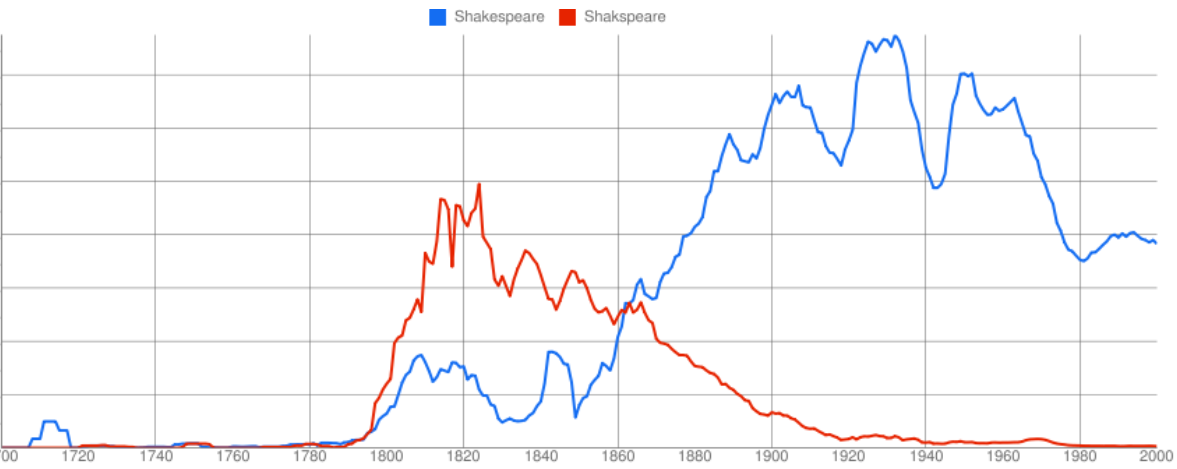People Don't Fart Like They Used To: More Fun with N-Grams
In playing around with N-Grams on Monday, I noticed that the use of the word ‘fart’ has declined precipitously over the last three centuries.

I was very excited about this, thinking I has just made a major discovery about the history of indigestion.
Unfortunately, digging into the data shows that this is due errors in Google’s OCR.

Clearly these are mis-readings of the word ‘part’. Though the biblical passage is arguably improved by the replacement.
Dying Words: More Fun with N-grams

One of the great things about being in the start-up world now is the excitement around creating something new. All around me people are excited about what they are doing in a way that I haven’t seen since I was in finance at the height of the bubble. And though I’m wary since I’ve lived through a bubble burst, I share the optimism.
But I miss the things that are going out of style. Not in an ironic way, like some people cherish mustaches moustaches, but because I’m sad that some people won’t know the world the way I know it. It is possible to lose technology or language completely. No one knows how to make Damascus steel or speak Linear A anymore.
So this is a tribute to some of the words or concepts that are leaving the English language. All of these words have seen their usage reduced by more than half since their peak, as measured by the always entertaining Google N-Gram Viewer.
Old Technology
As computer word processors continue to kill off the typewriter, it’s no surprise that the word is used less and less.

But changes in physical technology aren’t the only thing that can become obsolete. There are less than 20 ‘true’ monarchies left in the world

Changing Tastes
Sometimes objects just gain negative connotations and fall out of style. Even if you still need them to make a good pie crust.

And Other Reasons
Sometimes it isn’t totally clear why words fall out of favor. I think of the words ‘peculiar’ and ‘remarkable’ as words from the 19th century. And they are. But I can’t think of why. Fortunately, both words seem to be making a comeback (thanks, Brooklyn!).

If you have any ideas that explain the peculiar paucity of the word peculiar, or the remarkable decline in the word remarkable, let me know.
More Fun with N-grams: Shak(e)speare
I saw Richard III at BAM on Friday, which was outstanding. While I was playing around with the N-gram viewer yesterday, I tested some of the spellings of his name and discovered that the spelling we use today only became the popular spelling during the civil war:

I looked into it before Wikipedia went dark, and apparently there is no record of the man ever spelling his name with the first ‘e’. The six signatures appear as follows:
- Willm Shakp
- William Shaksper
- Wm Shakspe
- William Shakspere
- Willm Shakspere
- By me William Shakspeare
Notice the conspicuous absence of the first ‘e’.
I was trying to figure out why the shift to ‘Shakespeare’ happened. Strangely, it seems that British Prime Minister Benjamin D’Israeli might have been the catalyst for the change- he is the only influential person mentioned around that time having strong opinions. By the time of his death in 1881, the spelling ‘Shakespeare’ was preferred 3:1.
Does anyone have any other ideas on why this change happened?